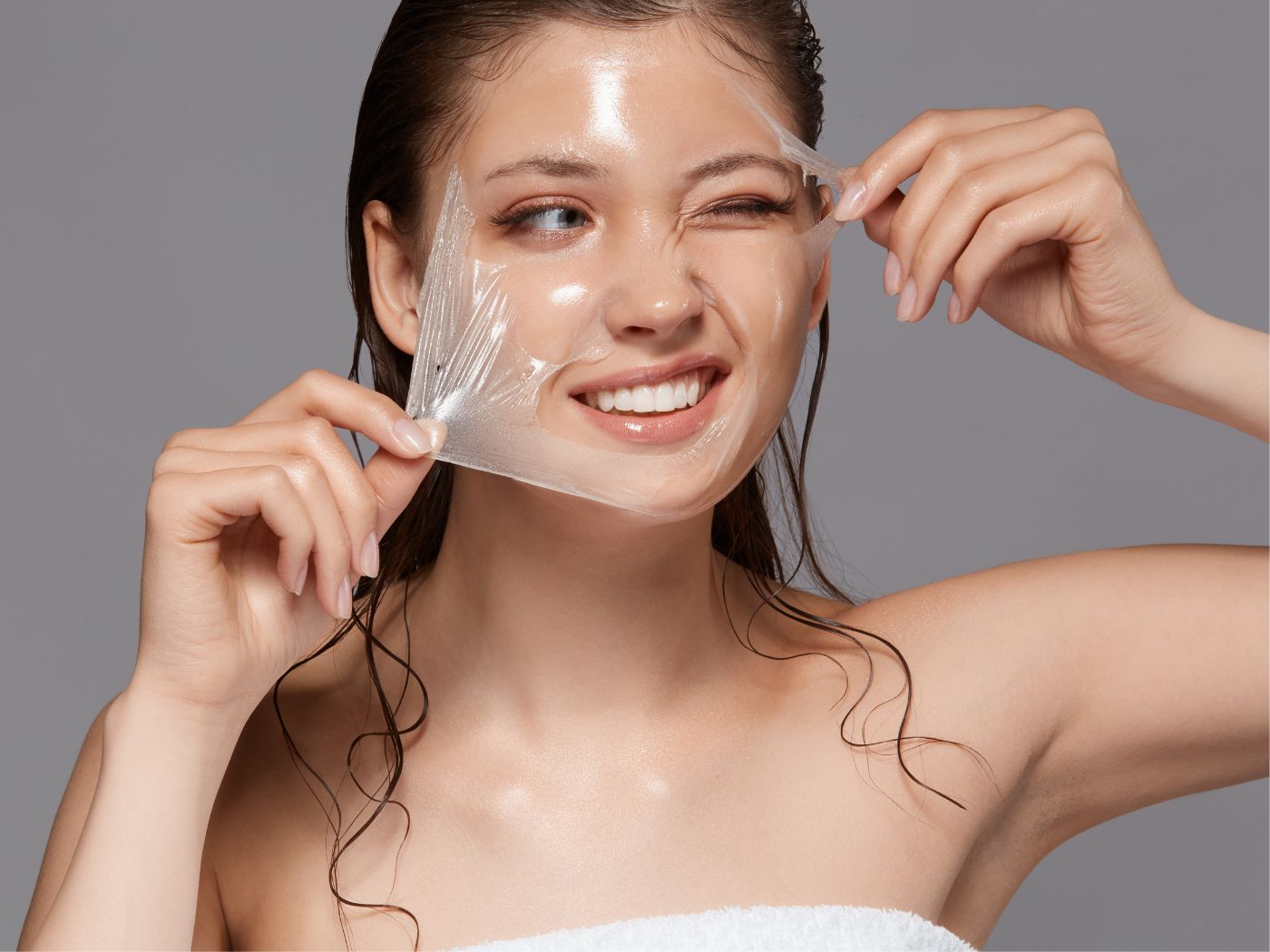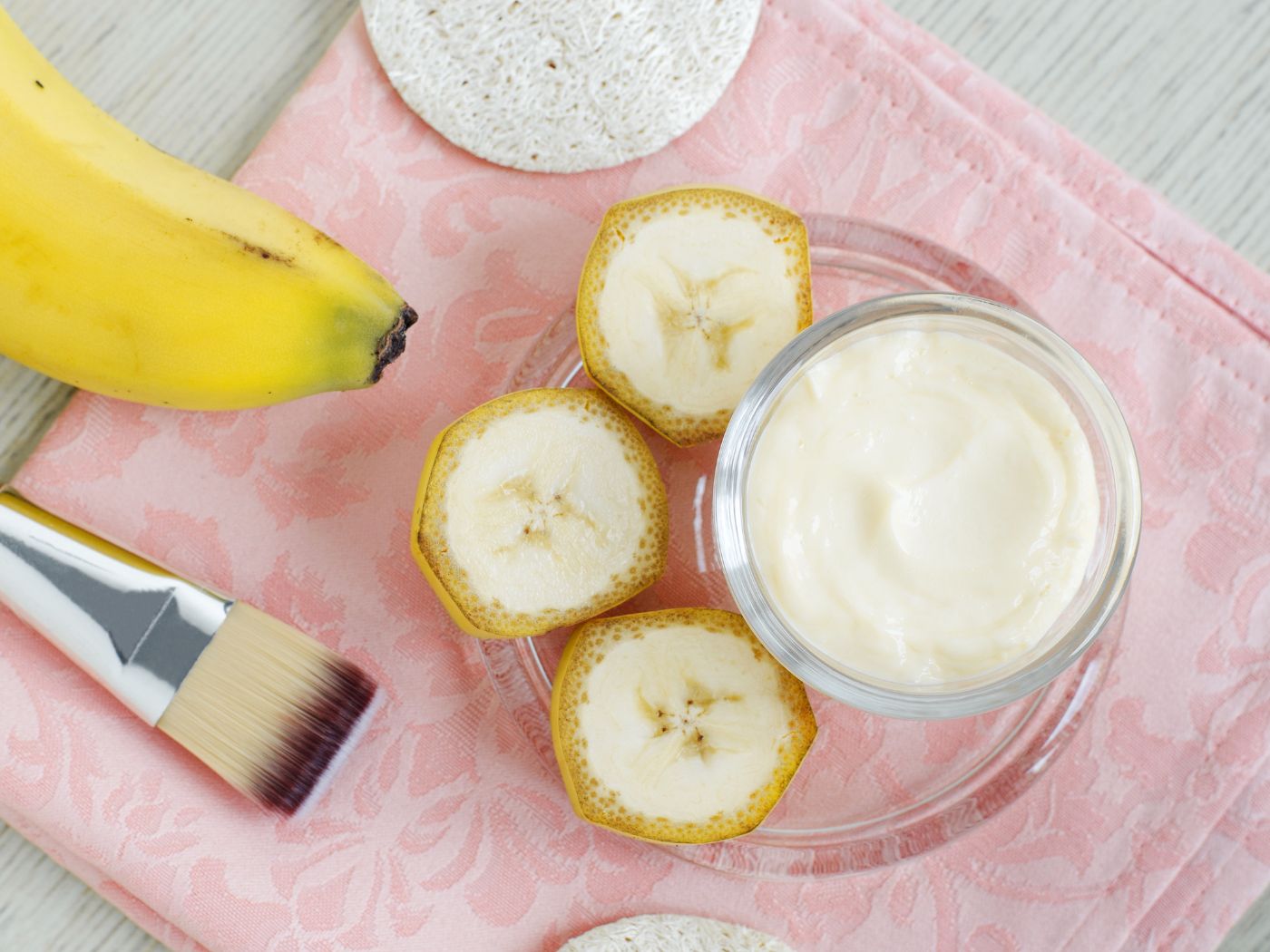Skin peeling while completely natural can cause a state of worry. It is uncomfortable and can make your skin look unhealthy! However, there are several easy tips that you can follow to prevent skin peeling. Today, we will understand the causes of skin peeling and talk about different skin peeling treatments! So let’s begin, shall we?
-
What Is Skin Peeling?
-
Causes Of Skin Peeling On Face
-
7 Tips To Help Deal With Skin Peeling On The Face
-
Conclusion
-
FAQs On Skin Peeling
What Is Skin Peeling?

Skin peeling is a natural process in which the outer layer of skin, called the epidermis, sheds dead skin cells and is replaced by new ones. This process is important for maintaining healthy skin and occurs regularly over the course of a person's life. However, when skin peeling occurs in excess or is accompanied by other symptoms such as redness, itching, or pain, it may be a sign of an underlying skin condition or reaction to a product or medication.
Some common causes of skin peeling include sunburn, dry skin, eczema, psoriasis, fungal infections, allergic reactions, and certain medications. In some cases, skin peeling can also be a symptom of more serious conditions such as skin cancer or autoimmune disorders. Treatment for skin peeling depends on the underlying cause and may involve lifestyle changes, topical or oral medications, or other interventions such as light therapy or surgery.
Causes Of Skin Peeling On Face

Skin peeling on the face can be caused by a variety of factors. Some common causes include:
- Sun damage: Sun damage is one of the most common causes of skin peeling on the face. Overexposure to the sun can cause the skin to become dry and damaged, leading to peeling. This is particularly common during the summer months or in places with a lot of sun exposure.
- Dry skin: Dry skin is another common cause of skin peeling on the face. When the skin is dry, it can become flaky and start to peel. This can be due to a variety of factors, such as cold weather, low humidity, or using harsh soaps or skincare products.
- Eczema: Eczema is a chronic skin condition that causes the skin to become dry, itchy, and inflamed, which can lead to peeling. Eczema is thought to be caused by a combination of genetic and environmental factors, and can be triggered by factors such as stress, allergies, or exposure to certain substances.
- Allergic reactions: Allergic reactions to skincare products, cosmetics, or other substances can cause the skin to become irritated, dry, and peel. This can be due to an allergic reaction to a specific ingredient in the product, or due to a sensitivity to the product as a whole.
- Psoriasis: Psoriasis is a chronic autoimmune condition that causes the skin to become inflamed and produce new skin cells too quickly, which can lead to peeling. Psoriasis can be triggered by a variety of factors, such as stress, infections, or certain medications.
- Acne: Acne can cause the skin to become irritated, inflamed, and peel. This is particularly common with severe acne or cystic acne, which can cause significant damage to the skin.
- Medications: Certain medications, such as retinoids and some antibiotics, can cause the skin to become dry and peel. This is a common side effect of these medications and typically resolves once the medication is discontinued.
It's important to determine the underlying cause of skin peeling on the face to effectively treat it. In some cases, simple measures like using a gentle cleanser and moisturiser, avoiding harsh skincare products, and staying hydrated can help. However, if the peeling is severe or accompanied by other symptoms, it's important to see a dermatologist for proper diagnosis and treatment. They may recommend prescription medications, light therapy, or other interventions depending on the underlying cause of the peeling.
7 Tips To Help Deal With Skin Peeling On The Face

Here are some tips to help deal with skin peeling on the face:
- Moisturise: Moisturising the skin is essential to keeping it hydrated and preventing skin peeling. Look for a gentle, fragrance-free moisturiser that contains ingredients like ceramides, hyaluronic acid, or glycerin, which help to lock in moisture and soothe the skin.
- Use a gentle cleanser: Harsh soaps or face cleansers can strip the skin of its natural oils and exacerbate skin peeling. Instead, use a gentle, non-foaming cleanser to clean the face. Look for a cleanser that is specifically formulated for dry or sensitive skin.
You can try Pure Sense Pink Guava Face Wash with Pomegranate and Thanaka to naturally cleanse your face gently and remove the dead skin cells for clean and naturally radiant skin.
- Avoid hot water: Hot water can further dry out the skin and worsen skin peeling. Instead, use lukewarm water when washing the face, and avoid long, hot showers or baths. Also, try to limit the amount of time spent in the water.
- Protect the skin from the sun: Sun damage can cause skin peeling, so it's important to protect the skin from the sun. Wear broad-spectrum sunscreen with an SPF of 30 or higher, and reapply it every 2 hours when outdoors. Also, wear a hat and sunglasses to further protect the face from the sun.
- Avoid irritants: Some skincare products contain alcohol, fragrances, or other irritants that can further irritate the skin and worsen skin peeling. Avoid using such products, and instead opt for gentle, fragrance-free skincare products that are specifically formulated for dry or sensitive skin.
- Use a humidifier: Dry indoor air can exacerbate skin peeling, so using a humidifier can help add moisture to the air and keep the skin hydrated. Place a humidifier in the room where you spend the most time, and keep it clean to prevent the growth of mould or bacteria.
- See a dermatologist: If the skin peeling is severe or accompanied by other symptoms, it's important to see a dermatologist for proper diagnosis and treatment. They may recommend prescription medications or other interventions to help address the underlying cause of the skin peeling.
By following these tips, you can help prevent and treat skin peeling on the face and keep your skin looking healthy and hydrated.
Conclusion
Here is everything you need to know about skin peeling and how to manage it! Remember it is a natural process and should not be a cause of worry. However, if it persists, you should consult your dermatologist to look for the underlying cause.
FAQs On Skin Peeling
-
Is skin peeling normal?
Skin peeling is a common occurrence and can be considered normal in certain circumstances. For example, when the skin is healing from a sunburn, it may peel as part of the natural healing process. Similarly, the skin may peel when it is exposed to extremely cold, dry air, or when there is a change in the weather. In these cases, the skin peeling is usually temporary and will resolve on its own.
However, skin peeling can also be a symptom of an underlying skin condition or infection. For example, skin conditions like eczema or psoriasis can cause skin peeling, as can fungal infections like athlete's foot or ringworm. In these cases, it's important to seek medical attention from a dermatologist for proper diagnosis and treatment.
-
How can you prevent skin peeling?
Skin peeling can be prevented by taking good care of the skin and avoiding the factors that can contribute to it. Moisturising the skin regularly, protecting it from the sun, staying hydrated, using a humidifier, avoiding hot water, using gentle skincare products, and being cautious with chemical peels can all help prevent skin peeling. If skin peeling does occur, it's important to identify the underlying cause and seek appropriate treatment to prevent further damage to the skin.
-
What is the best skin peeling treatment?
The best skin peeling treatment depends on the underlying cause of the peeling. If the peeling is caused by a mild sunburn or dry skin, over-the-counter moisturizers, lotions, or creams may be sufficient to treat the condition. However, if the peeling is caused by an underlying skin condition, infection, or injury, a dermatologist may recommend a more specialized treatment.







